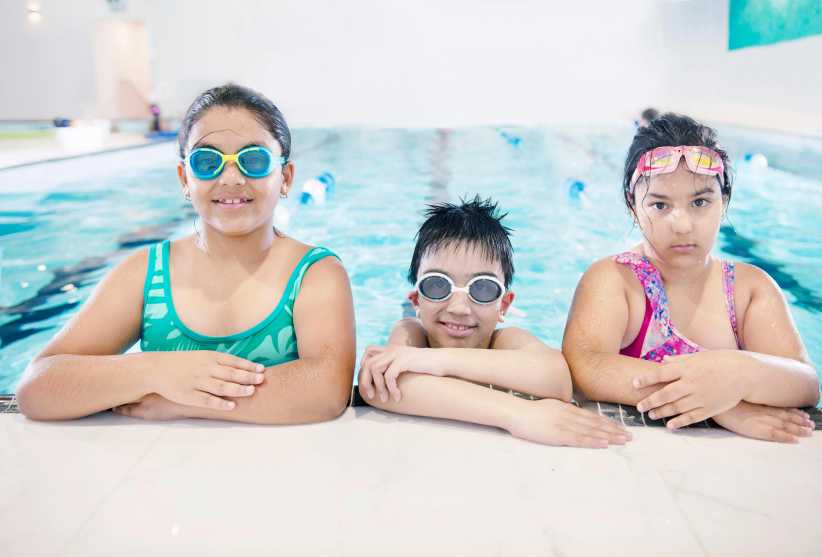Looking forward to having your kids home for the summer? I always am. I anticipate enjoying the outdoors and a much more leisurely pace while we enjoy long bike rides and hikes, an annual trek to the beach, lots of ice cream, and more time and connection.
The saying goes that a mom’s two favorite days are the day summer vacation begins and the day it ends. Is this true for you? Do you find yourself counting down the days to the start of school, because your kids have spoiled your dreams of a wonderful summer by arguing, fighting, or refusing to participate in family time and activities?
There are two primary culprits behind derailed summer dreams. Think back to the 10 months or so preceding summer and you’ll likely recognize them: lack of routine and time together.
What we often love about summer — the easy-going, unstructured days — can backfire. Kids without routines can easily become restless and edgy, which can lead to tormenting each other. Likewise, kids often spend the other 10 months separated — by bedrooms, school, peers, sports, and other extracurricular activities. Months of separation portend a lack of interaction, which in turn fosters unfamiliarity, and that makes spending time together challenging. So, do you want to nip a spoiled summer in the bud? Here are five ideas to address the key reasons summer dreams sour:
Be intentional
The first step to a successful summertime with your kids is understanding why summers sour. That said, be thoughtful about how you’re going to smooth the way. Realize that you will have challenges, and remember that your focus is on your kids, not what you need to do. Hold on to your enthusiasm, patience, and humor.
Have a plan
Consider your kids’ interests and plan activities around them or combine their interests into one activity. Remember to get your kids’ input on what they’d like to do. I have a daughter who loves nature, one who loves to bake, and two sons who are very active. I combine their interests into a bike ride through the woods that includes a picnic (with a special dessert made by my daughter) on the bank of our local river. We skip rocks after we eat. This has become a favorite summer outing.
Think ‘active’
Sitting around day-in and day-out frustrates kids; they need activity for healthy bodies and minds. I ban the use of computers and watching of videos and TV during the day (although the rules are different for inclement weather). We still go down to the local park to swing and spin and hit some balls around on the tennis courts. We often play games of H-O-R-S-E or croquet while waiting on dinner.
Think transitions
Provide an hour of downtime every day, to quietly read or create artwork. I set the kitchen timer, one of my “best” friends. Kids need time to regroup independently, just as you do. Similar to when you had your newborn, rest when they rest. I encourage you to not take this time to do household chores or other activities.
Keep it loose
Kids need routines; they help regulate their mind and body clocks, and kids know what to expect. Because there are fewer commitments during the summer, you can have a little looser routine, for example letting your kids stay up later to catch the fireflies or watch the stars and sleep later in the mornings. Kids should still have chores, like walking the dog and helping to water the garden. Just remember that while you have a looser schedule, the need still exists to keep a focus on the day and any plans.
The summer you desire is within your reach. Use the vacation time to reconnect and build deeper relationships among your kids, and between your kids and you. That last day of summer? You’ll come to wish it wasn’t.
Judy M. Miller is a freelance writer living with her husband and four children. She is a parent educator and the author of “What To Expect From Your Adopted Tween” and “Writing to Heal Adoption Grief: Making Connections & Moving Forward.”
Backup options
Have some back-up plans you can rely on in case of weather, other unforeseen circumstances, or your intended plan falls flat. The ideas are endless. Here are a few we enjoy:
Board games: Make sure the games can incorporate all of your kids’ ability levels, as well as yours.
Kitchen fun: Create a menu together. Shop for the ingredients and prepare the meal together. Kids of all ages can participate, from getting items together to measuring, stirring, mixing, cutting (with your supervision), and cleanup. We do a theme night once a week — Thai, Chinese, Italian, etc.
Get out of the house: Think pottery painting, first-run movies, local museums, and day-trips (destinations within a few hours of where you live).





















